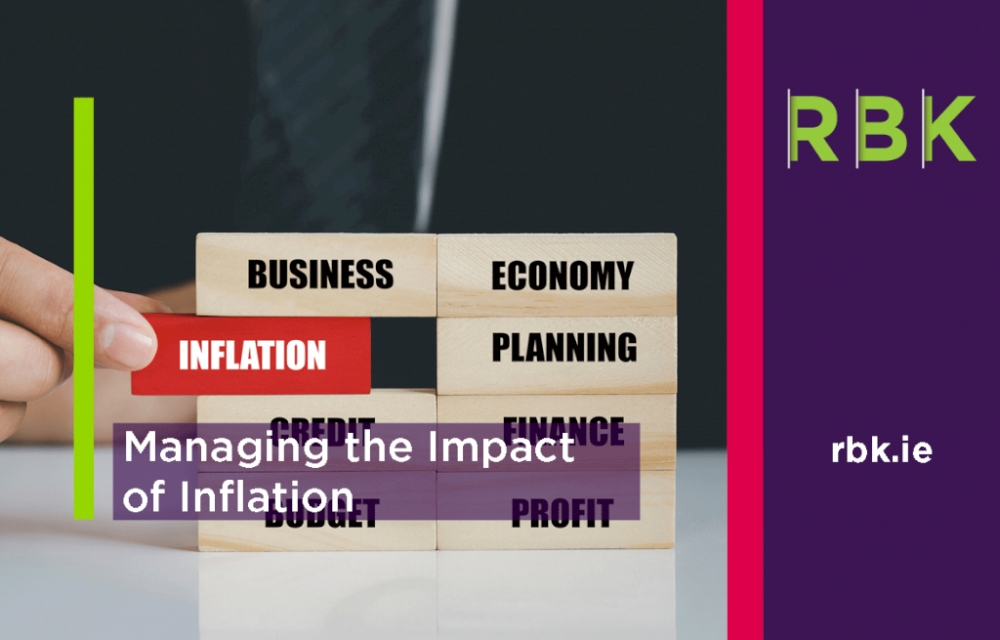With inflation pushing up costs and eroding profitability, having up to date, accurate management information is vital, says Laurence Hill, SME Director with RBK Chartered Accountants.
Rising costs are hitting businesses hard this year. The Central Bank has predicted that consumer price inflation will average 6.5% in 2022, before falling back to 2.8% in 2023 while according to AIB’s Purchasing Managers Index manufacturers’ input cost inflation in April 2022 was the highest in the survey’s history.
How should SMEs plan for the impact of inflation?
As SMEs face into the second half of the year, an immediate priority will be planning how to manage the impact of higher costs. Budgeting and cashflow management will require timely action due to the evolving and complexity of the current challenges.
As well as making provision for rising transport, energy and other overheads, businesses who trade with the UK need to take into account the additional post-Brexit cost of goods.
Labour costs are also rising as employees seek wage increases. SIPTU recently said that its members in more than 2,500 companies across Ireland will urgently seek minimum rises in line with the rate of inflation. Also two additional statutory employment costs will arise, they are statutory sick pay and pension auto enrolment.
- Statutory sick pay will give employees the right to paid sick leave. The scheme, which is being introduced on a phased basis, will start with an entitlement to three days statutory sick pay per year, rising to five days in 2024, seven days in 2025, and ten days in 2026. The payment rate will be 70% of an employee’s wage, subject to a daily maximum threshold of €110.
- Auto enrolment will give employees not already in an occupational pension scheme, who are aged between 23 and 60 and earning over €20,000 across all of their employments, access to a voluntary pension scheme on an ‘opt-out’ basis’. It is envisaged that this scheme, which is to set up by 2023 for employee enrolments in 2024, will be very gradually phased in over a decade, with both employer and employee contributions starting at 1.5%, and increasing every three years by 1.5% until they eventually reach 6% by Year 10 (2034).
Meanwhile, SMEs who availed of the Government’s COVID-19 Debt Warehousing Scheme need to make provision for the repayment of those taxes with Revenue, commencing in 2023.
With inflation at its highest level in decades, up-to-date, accurate management information is absolutely crucial when making decisions to facilitate performance review, comparison to budgets and forecasted cashflows. This information will also assist with identifying opportunities to control costs, streamline processes and evaluate pricing structure.
If you require assistance please contact a member of our SME Team .



